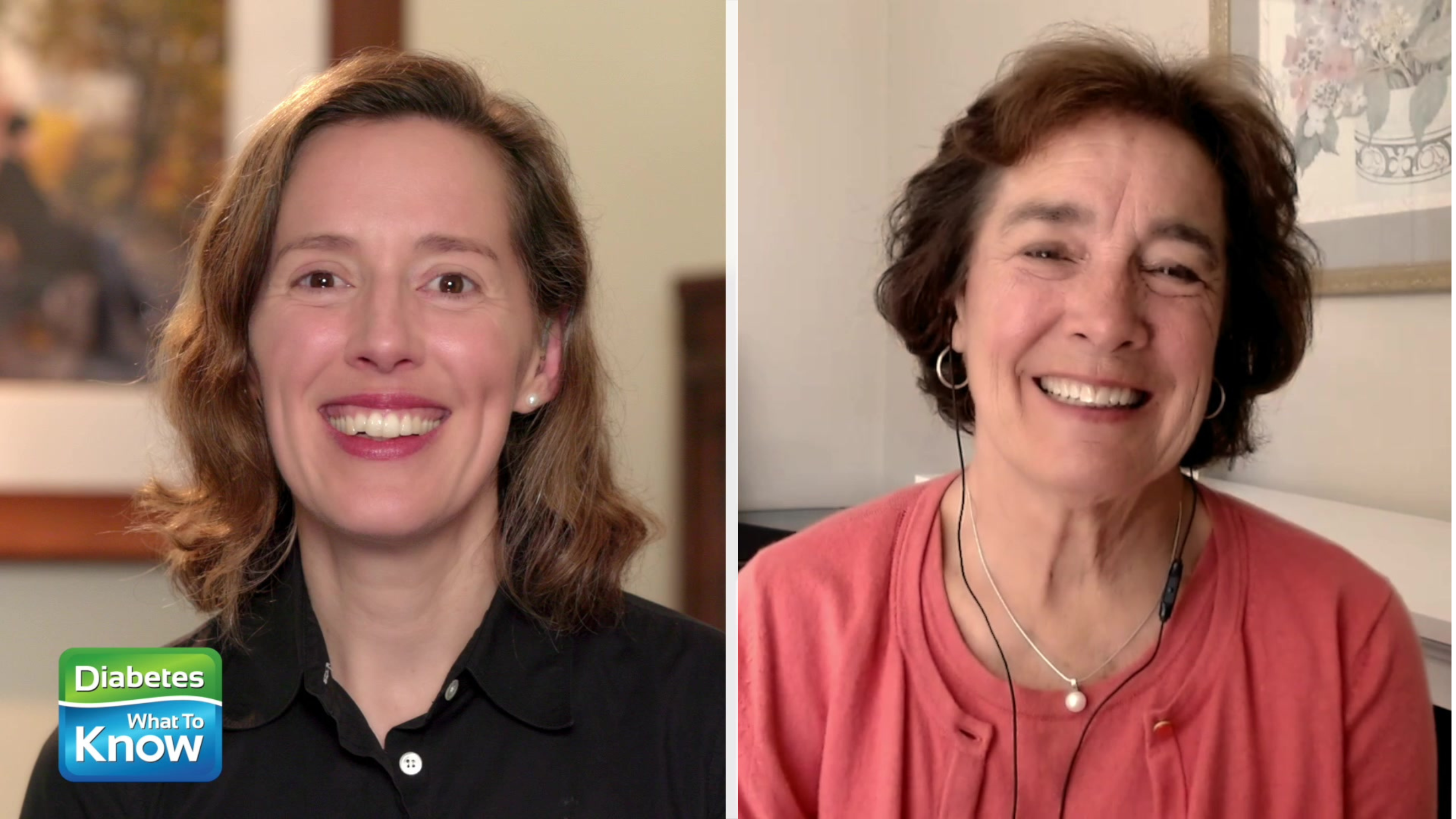Melinda Maryniuk, RD, CDCES joined us on Diabetes Primetime to answer common diabetes questions and talk about helpful eating patterns for people with diabetes. Watch the show here:
Our main takeaways from the show:
- Tracking how many carbs you’re eating can help you see how food affects your blood sugar. The general recommendation is 45 grams of carbs per meal for women, and 60 grams of carbs per meal for men. Talk to your doctor or diabetes educator to figure out what’s right for you.
- Carbohydrates are the most important source of fuel and energy for our bodies. There are benefits to lower-carb meal plans and diets, but going very low carb can be unhealthy, as it can lead to hypoglycemia.
- “Checking in pairs” means checking your blood sugar before eating, and then checking again 2 hours later. Look at the numbers to see how high your blood sugar went up after the meal – ideally, it doesn’t go above 180. Also, check to see if the second number is more than 50 points higher than the first number. If you consistently see a difference of more than 50 points between the two numbers, you may want to explore changing your meals/snacks, or talking to your doctor about changing your medications.
- Patterns in your blood sugar numbers can tell you if you need to change your medication, get a little more movement or adjust your meals / snacks. However, don’t make a change based on just one reading! The patterns over time (and your doctor’s help) will give you the best information.
- No food is completely off limits! You may need to change the portion size, or adjust other parts of your meal (for example, eating fewer carbs in your meal if you want to have a dessert), but it’s always possible to fit a favorite food into your meal plan. Seeing a diabetes educator can really help with this.
For more episodes of Diabetes Primetime, click here.
The medical information on Diabetes – What To Know’s website is provided as an information resource only. The content is not in any way intended to be nor should you rely on it as a substitute for professional medical evaluation, diagnosis, advice and treatment.

